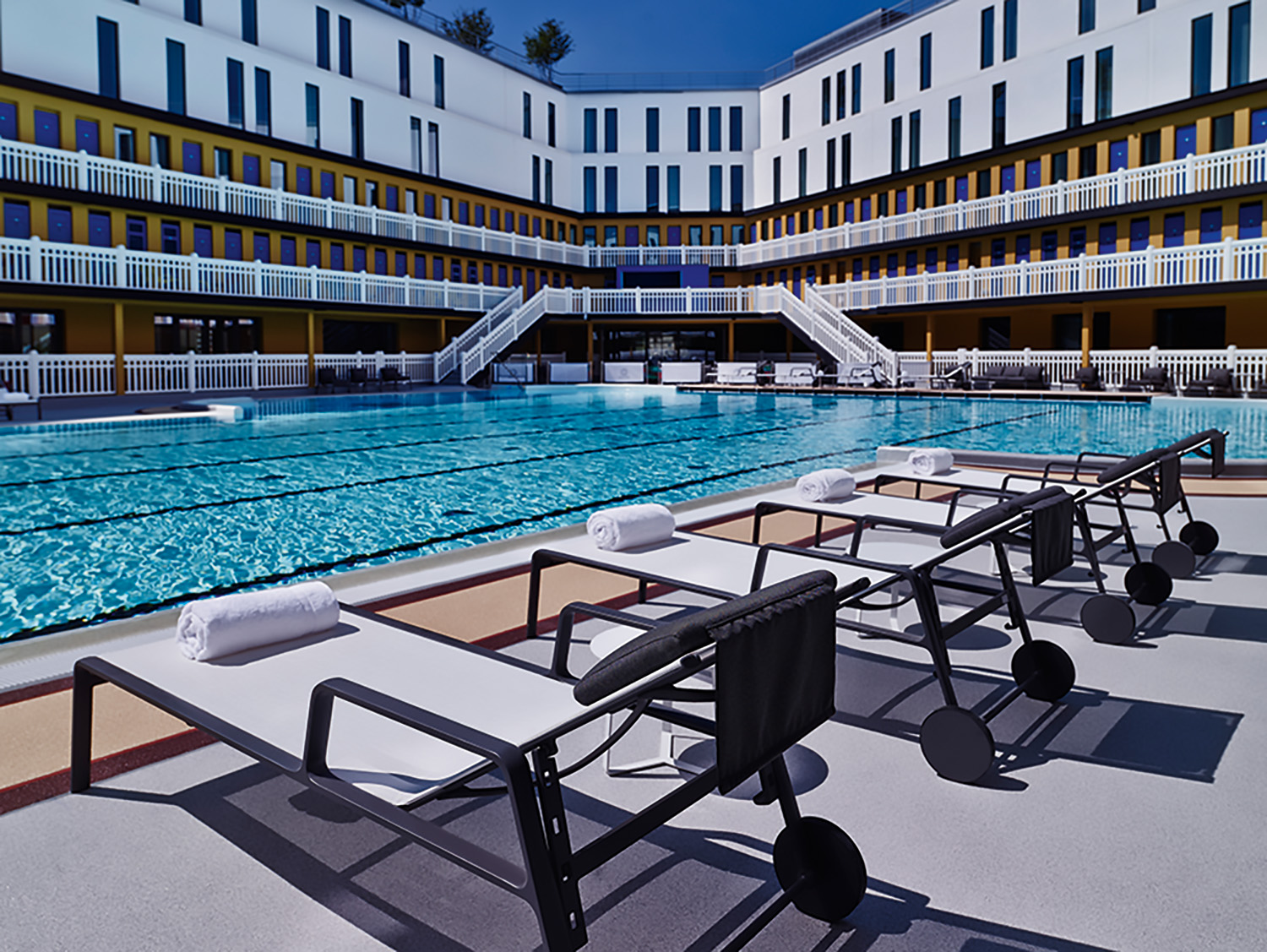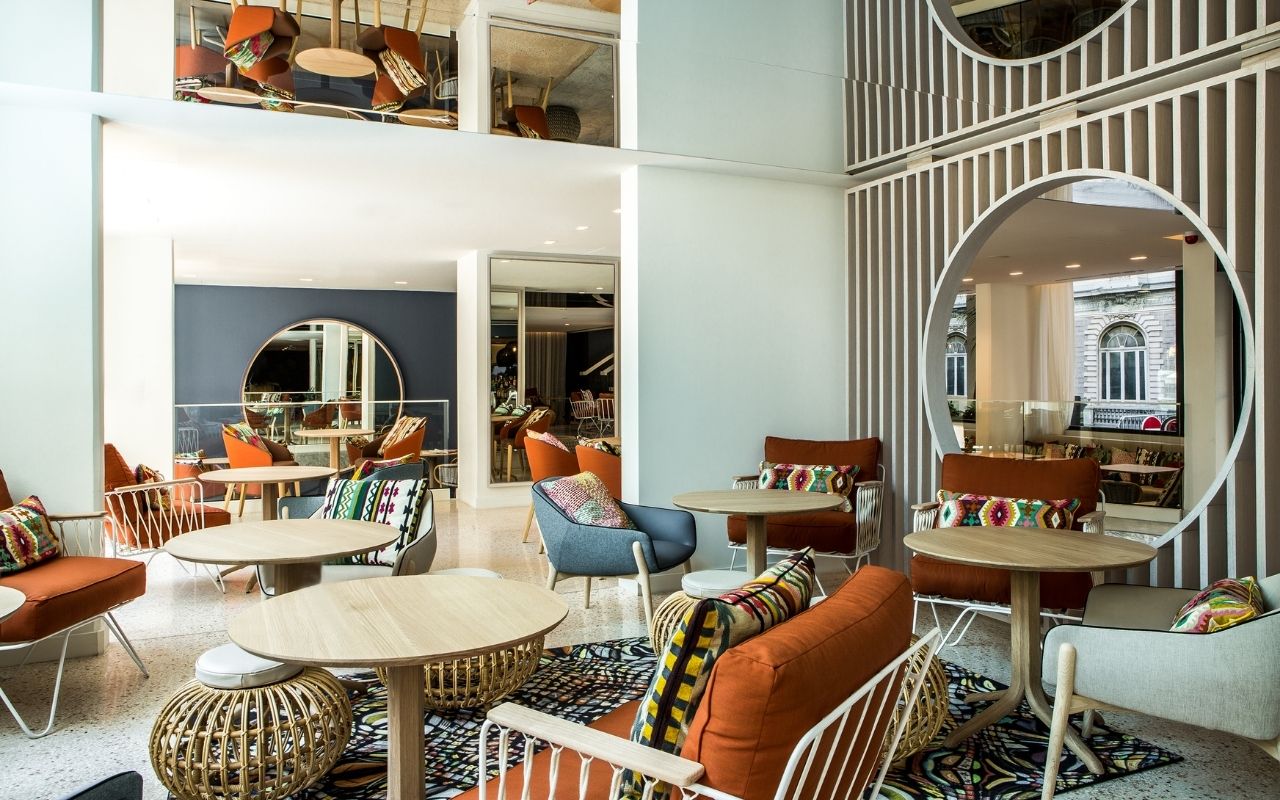The growing trend of workation and bleisure
The pandemic has accelerated the growing trend of workation and bleisure: traveling to exotic locations to work remotely (Workation) and working while on vacation (Bleisure). Both trends are here to stay and hotels have already started to adapt their commercial offers to include specific services for these demanding travelers. But as French architect and interior designer Jean-Philippe Nuel explains, hotels must do more than just offer services and discounts for long stays, they must rethink the spaces and purposes of the rooms, as well as their furniture. The future hotel room will therefore be different.
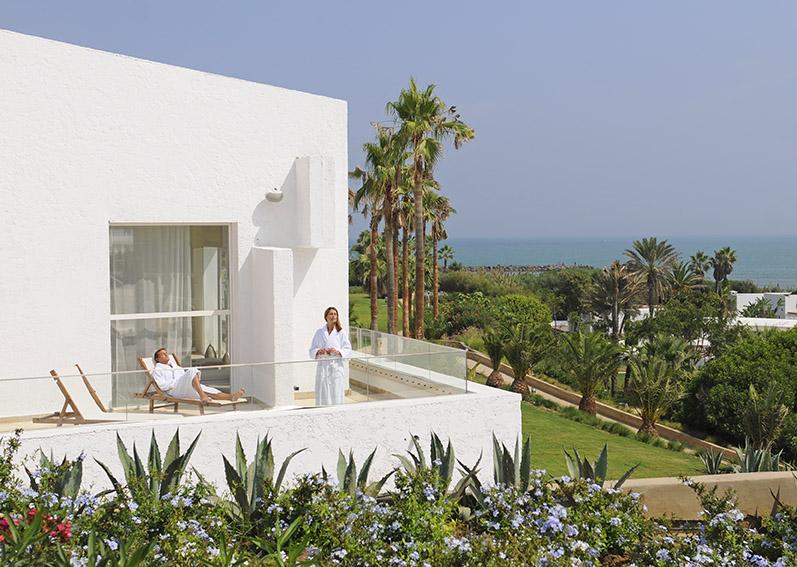
Post-covid tourism
Europe has reopened to tourists for the summer. People are rediscovering the joys of a social life, a show, a dinner in a restaurant or a stay in a hotel. This is an opportunity for post-pandemic tourism to create new business concepts, to apply the lessons of the unusual closure of the world, and to accompany a growing trend: the end of the frontier between leisure and work.
The tourism vocabulary is thus enriched by two concepts, two words—with a bitter sound: “Workation” and “Bleisure,” two words born out of the contraction of Work and Vacation for the first one, and Business and Leisure for the second. Yet, they both represent the idea of: taking a break for a moment during a business trip or, on the contrary, or being able to work away from home during one’s vacation. These new forms of tourism are going to change hotels’ interior design and experiences.
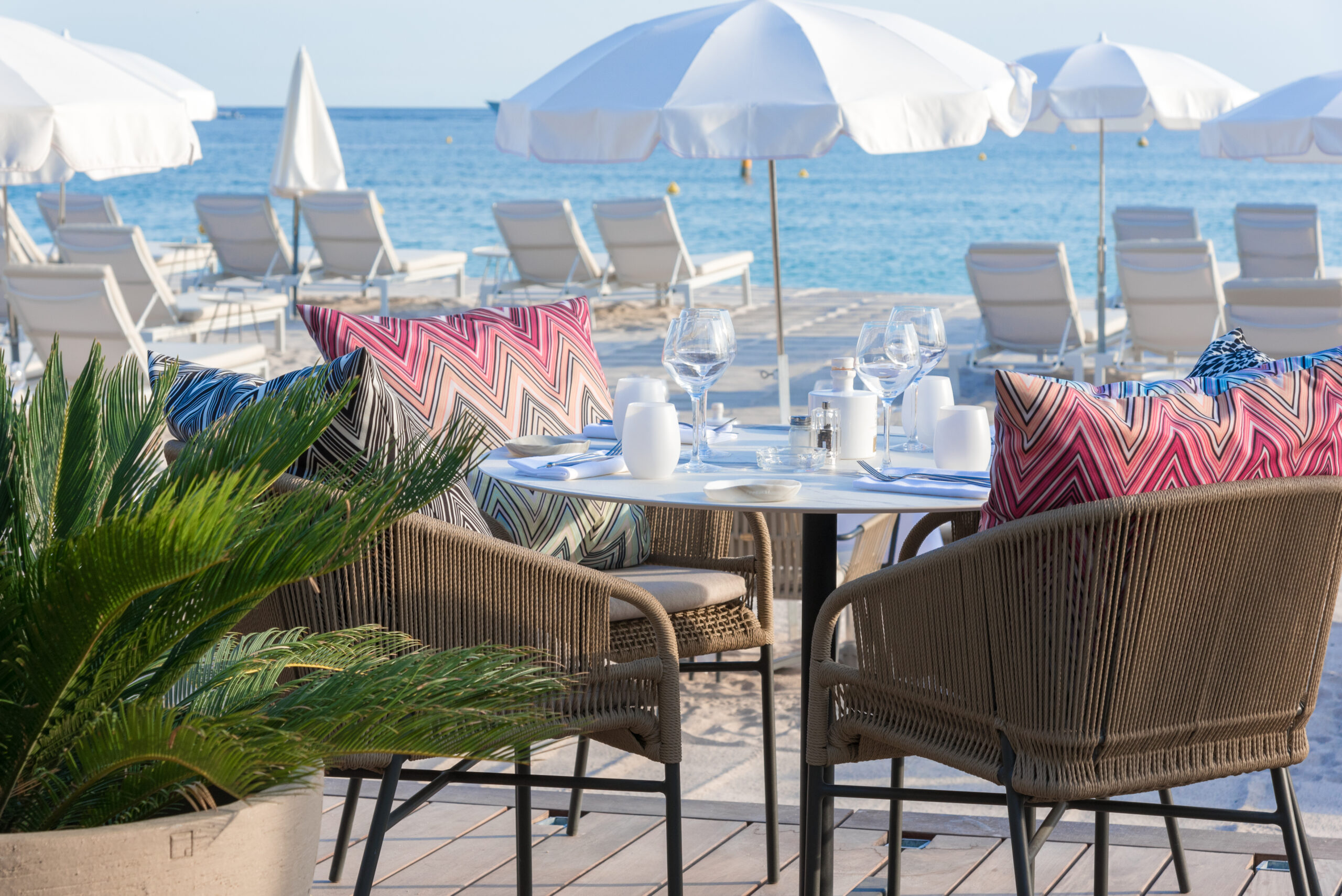
The "workation" has already become economically established during the pandemic
Caribbean islands started promoting this new kind of tourism during the pandemic. Aruba has even set up a special campaign: “One happy workation, your new office in Paradise.” Magazines and travel sites have even ranked the best destinations for a “workation.” Finally, hotel chains have turned it into a real selling point.
The idea is simple. Travel far away from home to an otherwise vacation destination to work remotely in an idyllic setting. As soon as a company offers the possibility to work from home, why not transfer this home to the other side of the world for a few days, weeks, or even months. An online work intermingled with exotic discoveries, mountains to climb in Colorado, underwater fishing in Aruba or cultural visits in San Miguel de Allende in Mexico.
Hotel chains have also adapted to this unusual context and trend: free nights or drinks, the promise of working Wi-Fi, discounted leisure services, access to medical care, and Covid-19 tests before going home if mandatory.
Unlike “Workation,” the "Bleisure" concept creates the opportunity to take a break from vacationing to deal with an urgent matter or participate in a video conference.
Who would like to miss the opportunity to spend a week in the winter sports because of work? Skiing during the day, but at nightfall, while family and friends are relaxing at a spa, window-shopping in the resort, or meeting in a bar, one member of the group chooses to isolate himself for a few hours to work before resuming his vacation. “Bleisure” is the perfect alternative to not being able to go on vacation with family or friends because of an appointment or an essential deadline.
In both cases, the line between vacation and work has blurred so thin that it has disappeared
Club Med President Henri Giscard d’Estaing recently emphasized the importance of remote working in postcovid toucriosmvid at a conference on Interdependence organized by the FrenchFounders network. Digitalization, he explained, has become essential in the relationship with the customer.
But that doesn’t mean that hotels and resorts can limit themselves to adapting an economic offer to a growing trend and offering Wi-Fi with the necessary level of privacy. This shift in the customer-hotel relationship should result in a transformation of venues and the development of free, simple, and secure experiences.
We are living in the age of nomadic technology, laptops, connected wristbands, cloud storage, tablets, and digital transactions. In the past, letterhead and envelopes were found in a desk drawer in a hotel room. Today, customers want powerful connectivity, outlets to charge batteries, and a smart screen at their disposal.
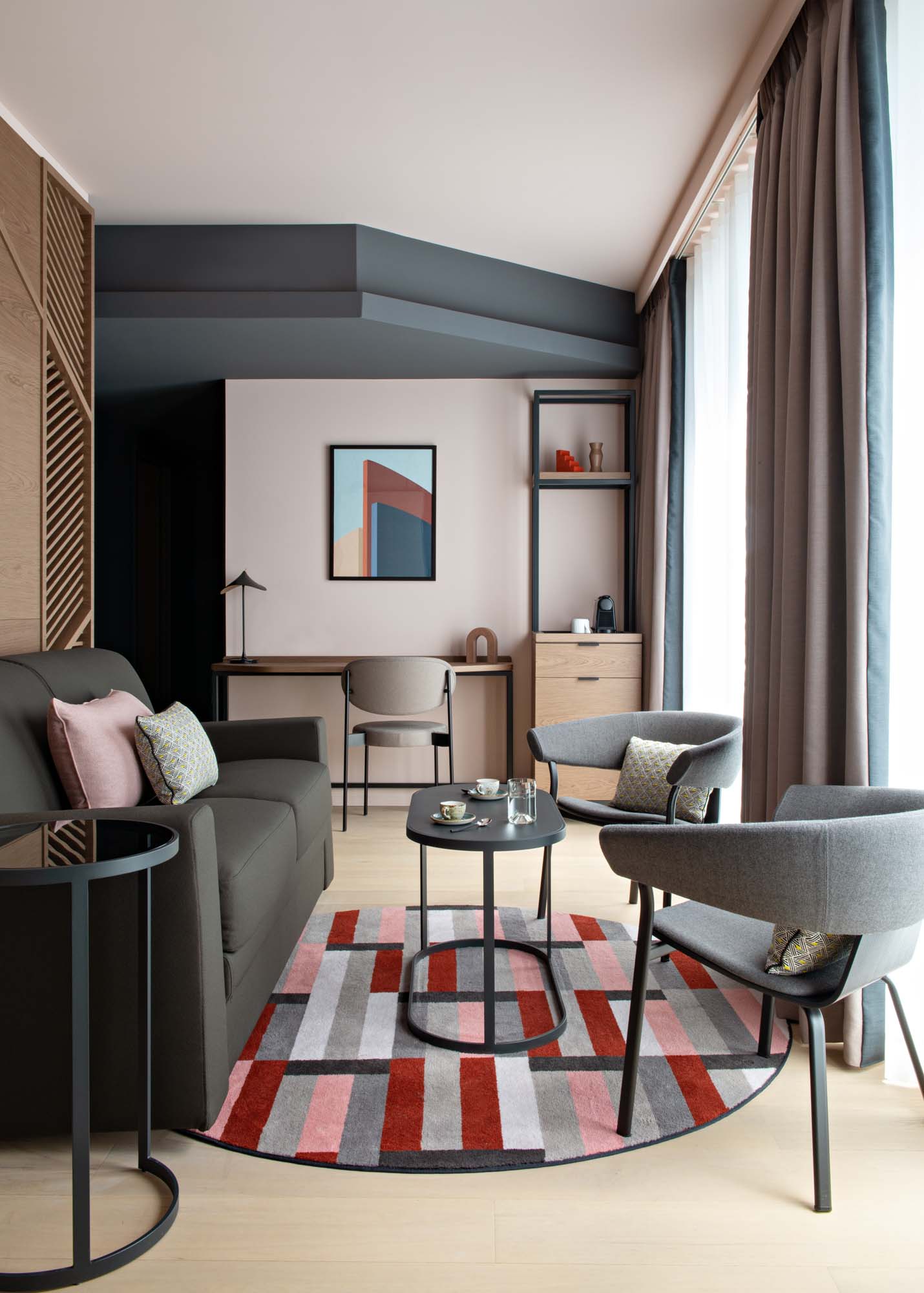
But is that enough? Do we need to adapt - and in some cases even rehabilitate - a real working space in the hotel room?
I think that the boring desk with a tray against the wall, which is supposedly a guarantee of concentration, belongs to the past. Let’s rather imagine a table with multiple functions, why not with a window view on one side on the sea, the mountain, a park or a swimming pool, and an inside view on the other side on a screen, a source of entertainment, a second computer screen or a remote working station.
This multifunctional table would serve as a breakfast, lunch, or dinner table as well as an office desk. It would be the ideal table, the one we all needed when we were confined to our homes or quarantined in a hotel during the pandemic. The room, somewhat neglected in recent years in favor of common areas of hotels, finds here a new meaning. It becomes a global living space that complements the possibilities offered by the lobby, the restaurant, or a private meeting room.
Transforming the room into a connected and flexible office is one way to adapt to the new trends of “Workation” and “Bleisure.” In some cases, however, this room may not be able to meet the guests’ new requirements, who may not only want a bedroom (relaxation/leisure) but also a business area (work/meetings).
Mixed architectural solutions can then be proposed
An independent office connected to the room could accommodate up to eight people and would be the ideal “separate” place for a videoconference, a confidential conversation or even a meeting. This additional room could be used for a family stay or as a single room and could be transformed into a living and dining space when equipped with a kitchenette. It becomes in the context of a more studious suite a determining factor for vacationers wishing to work, alone or with colleagues.
This is true for “Bleisure” and “Workation.” It is also true for a purely professional stay. The separation of work and private space creates a marked boundary that is necessary in 2021 to define a place of exchange and reflection where everyone can feel confident.
This integration of connected work and vacation time is in its infancy. These are experiences in the making, in search of a maturity and a specific economy. The design of spaces and furnishings will contribute to magnify these trends.
